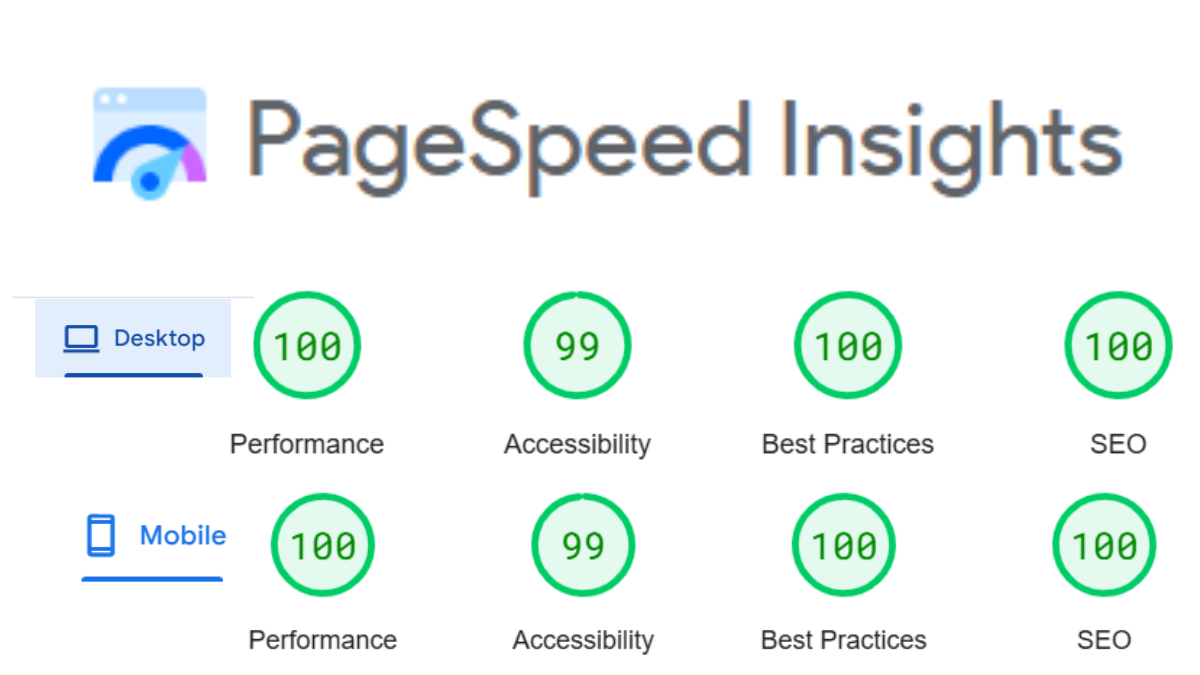Why Page Speed Matters for Google Rankings and How Our Service Can Help
When it comes to succeeding online, one factor that can’t be overlooked is page speed. How often have you left a website because it was too slow to load? For most of us, the answer is clear—very quickly! Page speed doesn’t just affect how visitors feel about your website; it directly influences your performance on search engines like Google. If your website loads slowly, you risk losing users, customers, and search engine visibility. But why exactly does page speed matter so much, and how can you optimize it? Let’s dig deeper.
Why Page Speed Is Crucial for SEO and User Experience
The Link Between Speed and User Engagement
User experience is at the heart of every website’s success, and page speed plays a huge role in shaping that experience. Research shows that users are likely to abandon a website if it takes more than three seconds to load. That means in just a few moments, a slow website could lose a significant portion of its audience. This directly affects bounce rates, or the percentage of users who leave your site after visiting just one page, which is a critical metric for online performance. High bounce rates signal to Google that your website may not be providing value to users, which can drag down your rankings.
On the other hand, fast-loading pages keep visitors engaged, leading to longer browsing sessions, increased trust, and higher chances of conversions. For example, an e-commerce site with faster page loads is more likely to retain shoppers who go on to make a purchase. Speed simply translates to a better experience, and in today’s competitive environment, that means everything.
contact us today at enexseo@gmail.com or simply click on this button to visit fiverr
How Google Prioritizes Speed
Google has been emphasizing page speed as a ranking factor since 2010. Speed wasn’t just added to improve user experience—it’s also an indication of how well a website is optimized. With the introduction of Google’s Core Web Vitals in 2021, page speed became even more significant. These metrics measure the loading, interactivity, and visual stability of websites. Sites that perform poorly in these areas are penalized, ranking lower in search results.
Because of this, fast websites receive a double benefit. They not only create a satisfying user experience but also signal to Google that they’re high-performing, quality sites. The result? Better visibility, more traffic, and ultimately, more opportunities for success.
Mobile Users Demand Speed
Another crucial reason to prioritize page speed is the rising dominance of mobile users. Mobile devices now account for more than half of all global web traffic. Mobile users often experience slower speeds due to network constraints, which means that a slow-loading site is even more noticeable—and frustrating—on mobile. Google introduced mobile-first indexing in 2018, meaning it uses the mobile version of a website for indexing and ranking. If your site isn’t optimized for speed on mobile devices, you could be losing out on both traffic and rankings.
Detailed Techniques for Optimizing Page Speed
Improving your website’s speed involves addressing multiple aspects of its performance. Here are detailed techniques we incorporate into our service to boost your WordPress site’s speed:
- Image Optimization
Images often account for a large portion of a webpage’s total size. By compressing images without compromising their quality, we significantly reduce the time it takes for them to load. We also implement lazy loading, which ensures images are only loaded when they’re in view, speeding up the rest of your page’s content. - Browser Caching
Browser caching allows your website to store key resources locally on a user’s device for faster access during repeat visits. This ensures that returning visitors spend less time waiting for your site to load. - Code Minification
Websites often include messy or redundant code in their HTML, CSS, and JavaScript files. By cleaning up this code, we reduce the amount of data a browser needs to process, resulting in faster load times. - Database Optimization
Over time, WordPress databases can fill up with unnecessary data such as post revisions, spam comments, and expired transients. We perform a thorough clean-up to streamline the database and improve performance. - Content Delivery Networks (CDN)
A CDN spreads your content across multiple servers worldwide, reducing the amount of time it takes for users to access your site from different locations. This can significantly enhance the speed at which global users can view your content. - Reducing HTTP Requests
Every file on your webpage (like images, stylesheets, and scripts) sends an HTTP request to the server, and too many can slow your site. We combine files or use methods to minimize these requests. - GZIP Compression
This technique compresses files, making them smaller and faster to load in a user’s browser. - Hosting and Server Optimization
Sometimes, slow website speeds are caused by poor hosting services. We can help migrate your WordPress website to a reliable hosting provider with faster servers for better performance.
Success Stories of Page Speed Optimization
One of our recent projects involved a WordPress site for an online retail store struggling with slow load times. Their homepage took over five seconds to load, which led to high bounce rates and declining sales. By implementing our optimization techniques, such as CDN integration and image compression, we got their load time down to under two seconds. The result was immediate—sessions increased by 30%, and their conversion rate rose by 25%.
Another example comes from a publishing platform with a large volume of blog posts and images. After optimizing their database and enabling browser caching, page views per visitor increased significantly, and their Google rankings improved within weeks.
Why Invest in Professional Services for Speed Optimization?
Many website owners assume they can handle page speed optimization on their own. While it’s true that some basic improvements are easy to implement, fully optimizing a website requires a mix of technical expertise and in-depth analysis. Here’s why using a professional service like ours makes sense:
- Tailored Solutions: No two websites are the same. A professional service evaluates your site’s specific needs and applies customized solutions for maximum impact.
- Technical Expertise: Tasks like server optimization and code minification require a strong understanding of technical aspects. We have the tools and knowledge to handle these complexities.
- Time-Saving: Website owners often lack the time to focus on technical optimization while running their business. Hiring us allows you to focus on core activities while we handle the speed improvements.
Common Misconceptions About Page Speed
Some people believe that page speed only matters for large websites or e-commerce portals. That’s not true. Even small blogs or local business websites benefit from faster speeds, as it improves user trust and retention.
Another misconception is that page speed improvements are one-time fixes. While a massive initial boost is achievable, maintaining optimal speed requires ongoing monitoring and adjustments. This ensures your website keeps up with evolving technology and SEO standards.
Take Action Now!
Your website’s speed isn’t just a technical metric—it’s the backbone of your online success. A slow site can cost you traffic, customers, and revenue. By optimizing your page speed, you’ll create a smoother experience for users, improve your search rankings, and give your site the competitive edge it needs.
Don’t leave your website’s performance to chance. Our WordPress page speed optimization service is designed to take the hassle out of making your website faster and more efficient. We’ll work closely with you to identify areas for improvement and deliver lasting results. Get in touch today—because every second counts.

